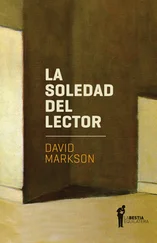Books become ruined by it.
Books being more of the baggage I got rid of, incidentally. Even if there are still many in this house, that were here when I arrived.
I should perhaps indicate that there are eight rooms in the house, although I make use of only two or three.
Actually I did read, at times, over the years. Especially when I was mad, I read a good deal.
One winter, I read almost all of the ancient Greek plays. As a matter of fact I read them out loud. And throughout, finishing the reverse side of each page would tear it from the book and drop it into my fire.
Aeschylus and Sophocles and Euripides, I turned into smoke.
In a manner of speaking, one might think of it that way.
In a different manner of speaking, one might declare it was Helen and Clytemnestra and Electra, whom I did that with.
For the life of me I have no idea why I did that.
If I had understood why I was doing that, doubtless I would not have been mad.
Had I not been mad, doubtless I would not have done it at all.
I am less than positive that those last two sentences make any particular sense.
In either case neither do I remember where it was, exactly, that I read the plays and burned the pages.
Possibly it was after I had gone to ancient Troy, which may have been what put me in mind of the plays to begin with.
Or would reading the plays have been what put me in mind of going to ancient Troy?
It did run on, that madness.
I was not necessarily mad when I went to Mexico, however. Surely one does not have to be mad to decide to visit the grave of one's dead little boy.
But certainly I was mad when I drove the breadth of Alaska, to Nome, and then pointed a boat across the Bering Strait.
Even if I did seek out charts, that time.
Well, and had once known boats, as well. But still.
Yet after that paradoxically made my way westward across all of Russia with scarcely any maps at all. Driving out of the sun each morning and then waiting for it to appear ahead of me as the day progressed, simply following the sun.
Brooding upon Fyodor Dostoievski as I went.
Actually, I was keeping a weather eye out for Rodion Romanovitch Raskolnikov.
Did I stop at the Hermitage? Why do I not remember if I stopped in Moscow at all?
Well, quite possibly I drove right past Moscow without knowing it, not speaking one word of Russian.
When I say not speaking one word, I mean not reading one either, obviously.
And why did I write that pretentious line about Dostoievski, when I do not have any notion now if I allotted a moment's thought to the man?
More baggage, then. At least here and now while I am typing, if not at that earlier time.
As a matter of fact when I docked the launch after the last island and went hunting for an automobile again I was possibly even surprised that they had Russian printing on their license plates. Having half imagined that I ought to be in China.
Though it strikes me at only this instant that one possesses certain Chinese baggage too, of course.
Some. There seems no point in illustrating the fact.
Even if I happen to be drinking souchong tea as I say that.
And in either case the Hermitage may be in Leningrad.
Then again there is no question that I was, decidedly, looking for Raskolnikov.
Using Raskolnikov as a symbol, one can decidedly say that I was looking for Raskolnikov.
Though one could also say that I was looking for Anna Karenina, just as readily. Or for Dmitri Shostakovich.
I was looking when I went to Mexico too, naturally.
Hardly for Simon, since I knew all too well that Simon was in that grave. Looking for Emiliano Zapata then, perhaps.
Again symbolically, looking for Zapata. Or for Benito Juarez. Or for David Alfaro Siqueiros.
Looking for anybody, anywhere at all.
Well, even mad was looking, or for what earthly reason else, would I have gone wandering off to all of those other places?
And had been looking on every streetcorner in New York before that, naturally. Even before I moved out of SoHo, had been looking everywhere in New York.
And so was still looking that winter when I lived in Madrid, as well.
I am not certain whether I have mentioned my period in Madrid.
In Madrid I did not live at the Prado, as it turned out. Perhaps I have suggested that I had thought to do so, but it was too badly lighted.
It is natural light that I am speaking about in this case, already having begun to shed most of my devices by then.
Only when the sun is especially fierce can one begin to see that Rogier van der Weyden the way it wants to be seen.
I can attest to this categorically, having even washed the windows nearest it.
Where I lived in Madrid was in a hotel. Choosing the one they had named after Velazquez.
Looking, there, for Don Quixote. Or for El Greco. Or for Francisco de Goya.
How poetic most Spanish names generally sound. One can say them over and over.
Sor Juana Inés de la Cruz. Marco Antonio Montes de Oca.
Though in fact both of those may be names from Mexico again.
Looking. Dear heaven, how anxiously I looked.
I do not remember when it was that I stopped looking.
In the Adriatic, when I was on my way from Troy to Greece, a ketch swooped toward me swiftly, its tall spinnaker taking noisy wind.
Just imagine how that startled me, and how I felt.
One moment I was sailing, as alone as ever, and a moment after that there was the ketch.
But it had only been adrift. Through all of that time, presumably.
Would it have been as long as four or five years, by then? I am almost certain that I remained in New York for at least two winters, before I went looking elsewhere.
Near Lesbos, I saw that ketch. Or perhaps Scyros.
Is Scyros one of the Greek islands?
One forgets. There is a loss of baggage unwittingly, too.
As a matter of fact I now suspect I ought to have said the Aegean when I said the Adriatic, a few paragraphs ago. Surely it is the Aegean, between Troy and Greece.
This tea is baggage of a sort also, I suppose. Though in this case I did seek it out again, after that other beach house burned. Little as I burden myself with, did wish for tea.
And some cigarettes as well, although I smoke very little, these days.
Well, and other staples too, naturally.
The cigarettes are the sort that come in tins. Those in paper had begun to taste stale some while ago.
Most things did, which were packaged that way. Not to spoil, necessarily, but to turn dry.
As a matter of fact my cigarettes happen to be Russian. That is just coincidence, however.
Hereabouts, everything stays damp.
I have said that.
Still, when I remove it from a drawer, often my clothing feels clammy.
Generally, summers as now, I wear nothing at all.
I do have underpants and shorts, and several denim skirts that wrap around, and some few cotton jerseys. I wash everything at the stream, and then spread it across bushes to dry.
Well, I have more clothing than that. Winter makes demands.
Except for gathering firewood beforehand, however, I have taken to worrying about winter when winter appears.
When it is here, it will be here.
When the leaves fall, generally the woods remain barren for a time before the snows, and I can see all the way to the spring, or even to the continuation of my path to the highway beyond.
It requires perhaps forty minutes to walk along the highway to the town.
There are stores, some few, and there is a gas station.
Kerosene is still to be found at the latter.
I rarely make use of my lamps, however. Even when what seems the last glimmer of sunset is gone, traces still reach the room I climb upstairs to sleep in.
Through another window at its opposite side the rosy-fingered dawn awakens me.
Читать дальше












